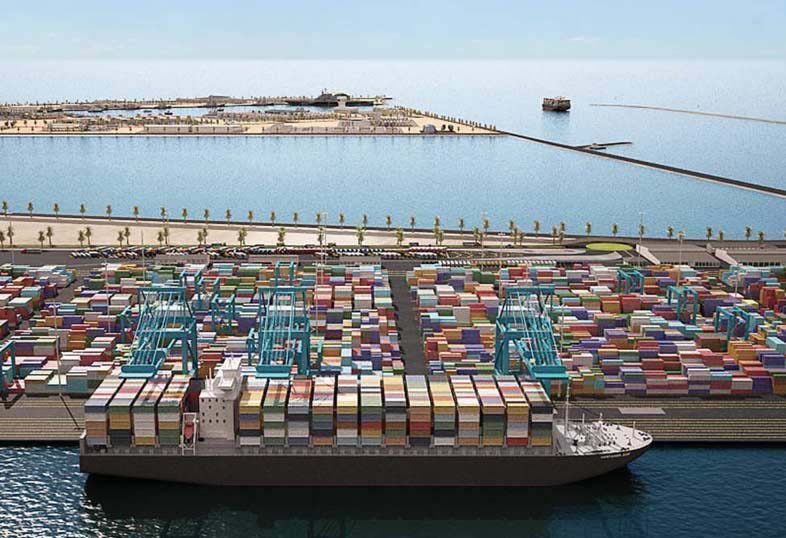
Addressing Qatar’s Cabinet session this week, the country’s transportation minister has said plans are afoot to speed up construction on the nation’s new port, with the goal of completing it some 10 years ahead of schedule.
Transport Minister Jassim Seif Ahmed al-Sulaiti said that the plan is to merge the first and second phases of the $7.5 billion project so that the third phase is completed in 2020, a decade ahead of its original target date of 2030. The first phase of the new port is due to be completed in 2016.
Located south of Doha near Wakra, the new 26sq km port will also house a new base for the Emiri Naval Forces and “Qatar Economic Zone 3,” a new industrial area integrated with residential units.
A 2020 completion would significantly improve the country’s import capacity in the run-up to the World Cup in 2022.
The news would undoubtedly be welcomed by Qatar’s construction industry, which is battling high prices for materials, driven in part by restrictions on the volume the country’s current port facilities can handle.
It is not clear how construction could be sped up to meet a 2020 deadline. Officials at the New Port Project have not yet responded to a request for comment.
‘Bottleneck’
Last year, key players in the country’s construction industry discussed some of the difficulties they face when trying to complete contracts on time and on budget in Qatar.
In addition to a shortage of skilled manpower and delays in the awarding of contracts, industry management at the Qatar Contractors Forum also raised concerns about an undersupply of imported construction materials.
Philippe Dessoy, general manager at the Six Construct Middle East, told the forum that a the shortage of locally-made construction materials was putting pressure on the port. He suggested that the government authorize Ras Laffan port to handle the importing of building materials as a temporary measure.
Meanwhile, Rod Stewart, managing director of British construction firm Atkins in Qatar, told Doha News that he believes the best way to tackle the current shortage of materials is to stagger large projects:
“With respect to the threat of supply bottlenecks, we’ve seen this in the region before, during the property boom in the UAE. What is needed, and is starting to happen more, is appropriate prioritizing and planning of the most critical projects, so as to spread construction activity more evenly throughout the next decade and to even out potential demand peaks.”
Thoughts?







